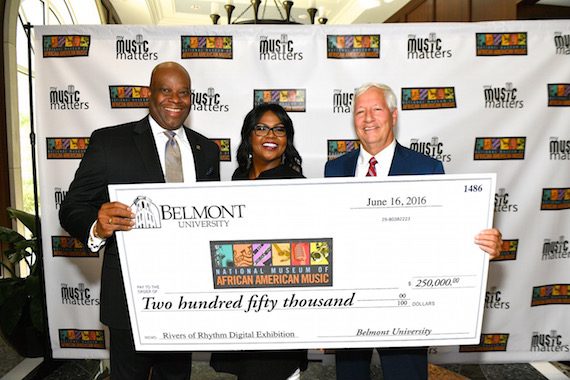
Derek Crownover
Derek Crownover, a partner and Entertainment Law Practice Group leader at Dickinson Wright PLLC, has spent decades engaged in helping artists, songwriters, publishers, managers and labels navigate the legalities involved in the various chapters of an artist’s career. From that vantage point, he has seen the dramatic changes of the music industry.
While many artists who pulled in commendable sales and social media numbers, such as Florida Georgia Line and more recently, Kane Brown, went on to sign with major labels, a plethora of other artists are currently releasing product through publishers, managers, and their own independent labels.
In a conversation with MusicRow, Crownover discussed the various record label routes available to rising artists.
MusicRow: Today, we see more and more independent artists aligning with publishers or managers to put out their own product, and we see them offering more of the same marketing and distribution services that labels have typically been known for.
Crownover: I think what really changed it was when the label started asking for 360 participation deals, where they are getting revenues from various sources. Artists’ lawyers and business managers were giving on those deals because they wanted [record] deals. Then they started giving the same things to publishers and managers, and quite frankly they were getting more value out of it because the labels don’t have publishing and management services in-house.
Labels are not developing the minor leagues like they do in professional baseball. There is really no college they are a part of either. They are just waiting until there is a bidding war, and then acquiring it. Those are some huge mistakes they are making and it’s providing a huge opportunity for publishers and managers to participate in that 360 income, prior to the label being involved. They are investing in it early, like seed capital investors.
These artists are obviously aligning themselves with independent and major labels to take their careers to the next level. What do labels offer for them?
Labels still have a lot of value and are extremely important. In certain instances they are doing a great job. If you need radio promotion and distribution to explode, then the label becomes important. Or if you are at the point where you are a branded act and you need that larger infrastructure to support that brand at that certain level, the label is then invaluable. There is no question you should be part of it.
The big question comes at those mid-level stages where you are on album two and you aren’t selling as well as you thought you would and the promotion and distribution are not as helpful as your own social media, as your own fan base. You get to the point of asking, ‘Should I own this asset?’ Then you’ve got the other options that are happening, like The Orchard, Alternative Distribution Alliance, Thirty Tigers. You see some real value coming from those folks at the middle level. Their ability to make money at 100,000 units is more attractive [to some artists] than a label that has that large infrastructure that says you really need to get to 500,000 or 1 million units before they start to see this large investment in promotion coming back to us.
Why might companies like The Orchard, ADA or Thirty Tigers be a good alternative option?
In some of the Orchard or digital deals, you own your master and license it to them. Your typical split can be 80-20 where the artist keeps 80 percent after distribution fees. A Thirty Tigers-type deal might be a 70-30 type deal. They use Sony/Red as their distribution. Thirty Tigers also offers services, where you might say, “I’m going to do a distribution deal, but we are going to add promotion and marketing and we might even pay for some of the recording costs.” It becomes very valuable for a mid-level artist or an artist that is hot property, but not quite hot enough for a label to commit.
Will we see more and more of these types of mid-level labels in the future?
Yes, because there is a need for it, but I think you are going to see the majors buy those up. Sony Records in March 2015 bought the remaining half of its interest in The Orchard, so you may see The Orchard eventually begin acting like a mini-major, instead of just a distribution company.
You also have numerous publishing companies releasing projects.
You are finding all these different routes now for a Steve Moakler- type artist or a Maggie Rose, where major labels have looked at both of those artists, but they haven’t necessarily fit the mold. So both of them have major, credible publishers involved like Creative Nation and Dallas [Davidson’s] Play It Again. You’ve got these tastemaker publishers that are making real investments. They are not telling their artists, “We are the best label or we are the best manager.” They are saying, “We believe in you, and we are going to help you launch, and when you get to a certain level, we will let you go, but we still want to participate in that income because we were the first to be a seed investor in you.”
We worked on both of those deals, and we represented those publishers in those deals.
What do the publishers and managers bring to the table in these deals?
The publishers and managers are probably the most powerful people in launching an artist right now. They are finding the songs and you can produce them so inexpensively now. Some labels have great A&R people, but they have to service their top-level acts, so in my opinion the power of finding a great act is not in a lawyer coming in and pitching it. It’s the publisher and manager committing to a new talent and saying, “I’m going to help put a website together, with artwork, help make the songs great, get a good producer involved.”
I see some managers now taking acts on, but they are participating in publishing because they are giving them money to live on and to write songs. I also see the reverse of that, where publishers give a publishing deal but they say, “Hey, we are managing you too, because we helping you find a producer, helping you launch your record, so why not participate in those revenue streams?”
At what point do you find major labels becoming interested in DIY artists?
That varies. I can look at some of the Florida Georgia Line stats, and I think they sold between 20-30, 000 downloads when the interest started to come. That was a few years ago though. Now it could be no downloads, but they have airplay on [SiriusXM’s] The Highway. Then there are some artists with 50,000 downloads that are still not signed with majors.
Legally, how do you prepare artists to make that transition to a major label?
You have to make the deal as clean as possible so that if there is major label interest, all the rights can go forward smoothly. “Did you get a production deal in place?” “Yes, and we owe them four points on the deal.” It’s specific. “Who owns the master?” “The artist, 100 percent and we are licensed to the Orchard and can stop the agreement in six months.”
Really, it’s keeping the artist clean enough so they are still attractive to a label. When that happens you hopefully have created a lot of leverage and you’ve done the work. When the label says, “Tell us about your rights,” we can say specifically what rights we have that they have been acquired and that there are no clouds on those titles or no issues with those rights. You can take them tomorrow and exploit them how you want, but you have to pay us.







 Renowned Nashville bass instrumentalist Mike Chapman has died at age 63.
Renowned Nashville bass instrumentalist Mike Chapman has died at age 63.




